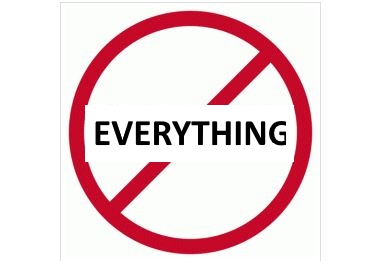 Even though I love to travel, I’m the first to admit that it’s not without its pitfalls.
Even though I love to travel, I’m the first to admit that it’s not without its pitfalls.
Recently, I’ve been reminded about some cases where travellers or expatriatess — usually Westerners — have got themselves into big trouble because they didn’t know what they were doing was illegal.
As your own government will tell you, ignorance of the law is no excuse, and there isn’t a lot your country’s embassy or consulate can do if you break the law while travelling. You can go to jail, be deported or even face corporal punishment for things you wouldn’t even think twice about at home.
But some laws may be so alien to your own culture that you may be taken aback — before you are taken away.
Here are five things that can get you into trouble in some countries.
Medicines. We all know not to smuggle illegal drugs, but medicines that you can easily buy over the counter, or acquire with a prescription, in your own country may be illegal in others. If you have to take a certain medicine, do some research to find out if it’s OK where you are going. You might be surprised. And always carry a prescription. The opposite to this is that you may find that in some drugs, such as antibiotics or heart medicines, that are restricted in your homeland are available on request at foreign pharmacies, or even in street stalls. Be careful when buying drugs overseas, because they may be fakes that are either useless or, worse, dangerous.
Your choice of attire. Some countries insist on modesty, especially in places of worship. Find out what is required and cover up as suggested — even if you see that other people aren’t doing so. Better to be safe than sorry.
Cohabitation. Even being in the same room as a member of the opposite gender who is not your close relative is illegal in some countries, and tourists and expats have been punished for this offence. Having sex outside of marriage is illegal in quite a few places that are popular with tourists — and you won’t find a word of that in the travel brochures. The authorities often turn a blind eye, but it could be used against you if you come onto the police radar for another reason. Also, just because places have easily-discoverable venues where sex is offered for sale, never assume that prostitution is legal. Hypocrisy is more widespread than sex work.
Taking pictures. Many countries prohibit taking photos of military or security installations. At least one I know of makes it an offence to photograph anybody without their consent, meaning that a shot taken of a crowd is technically illegal. One woman was detained and deported because she posted a picture on social media of a vehicle breaking the law by parking across two disabled parking slots. Even though she blanked out the number plate, it was determined that she had insulted the owner of the car. True story.
Expressing opinions. Defamation and related laws can be very strict. While some of us are used to making fun of our political leaders and state institutions, it is an offence in many countries, and can be punished very severely. Be careful what you say, in person, and on social media. In some places, even having certain posts or links on your social-media timeline is considered an offence.
The golden rule is: never assume that the law does not apply to you.
Update: Seems I should’ve added dancing.
